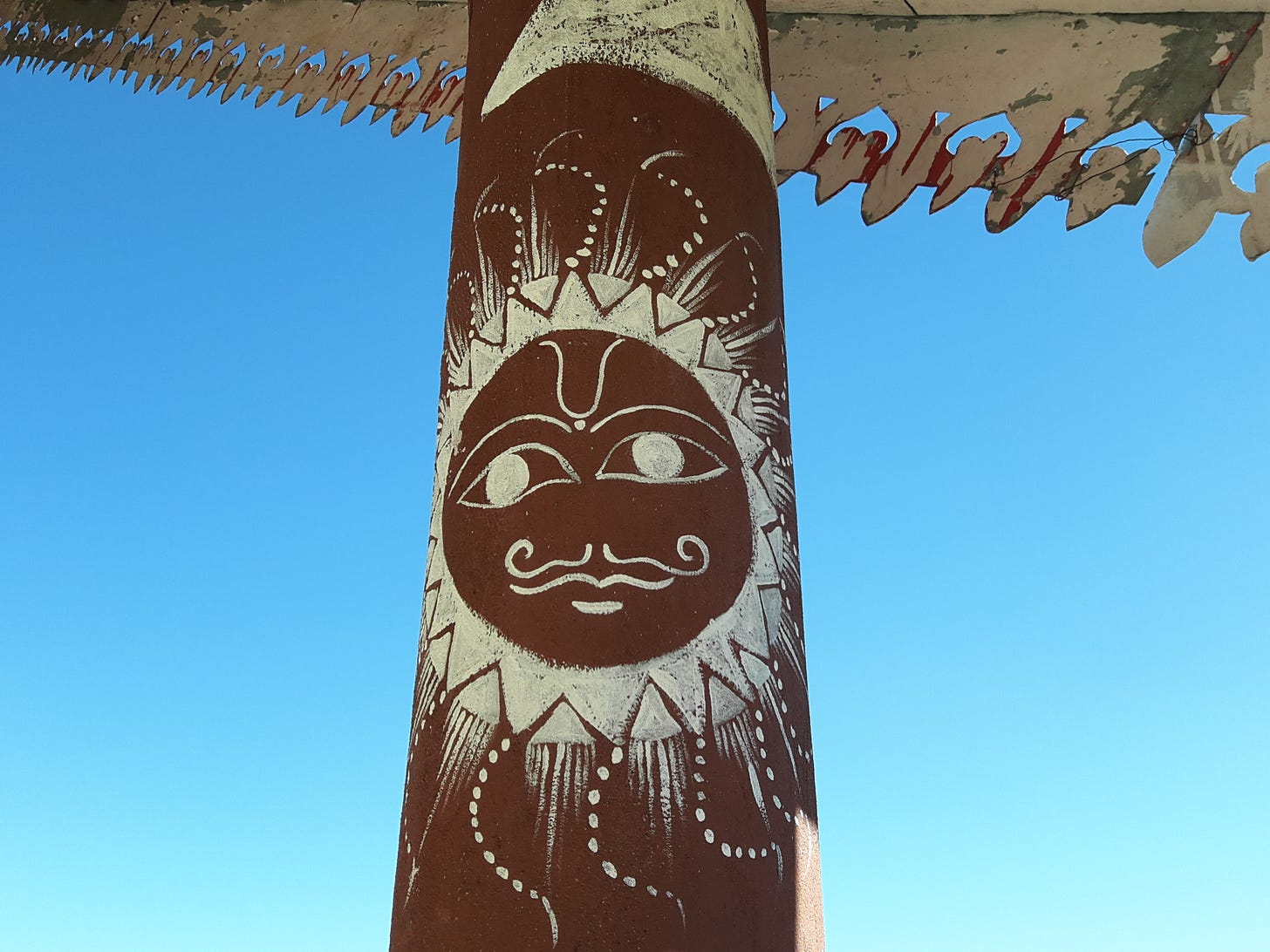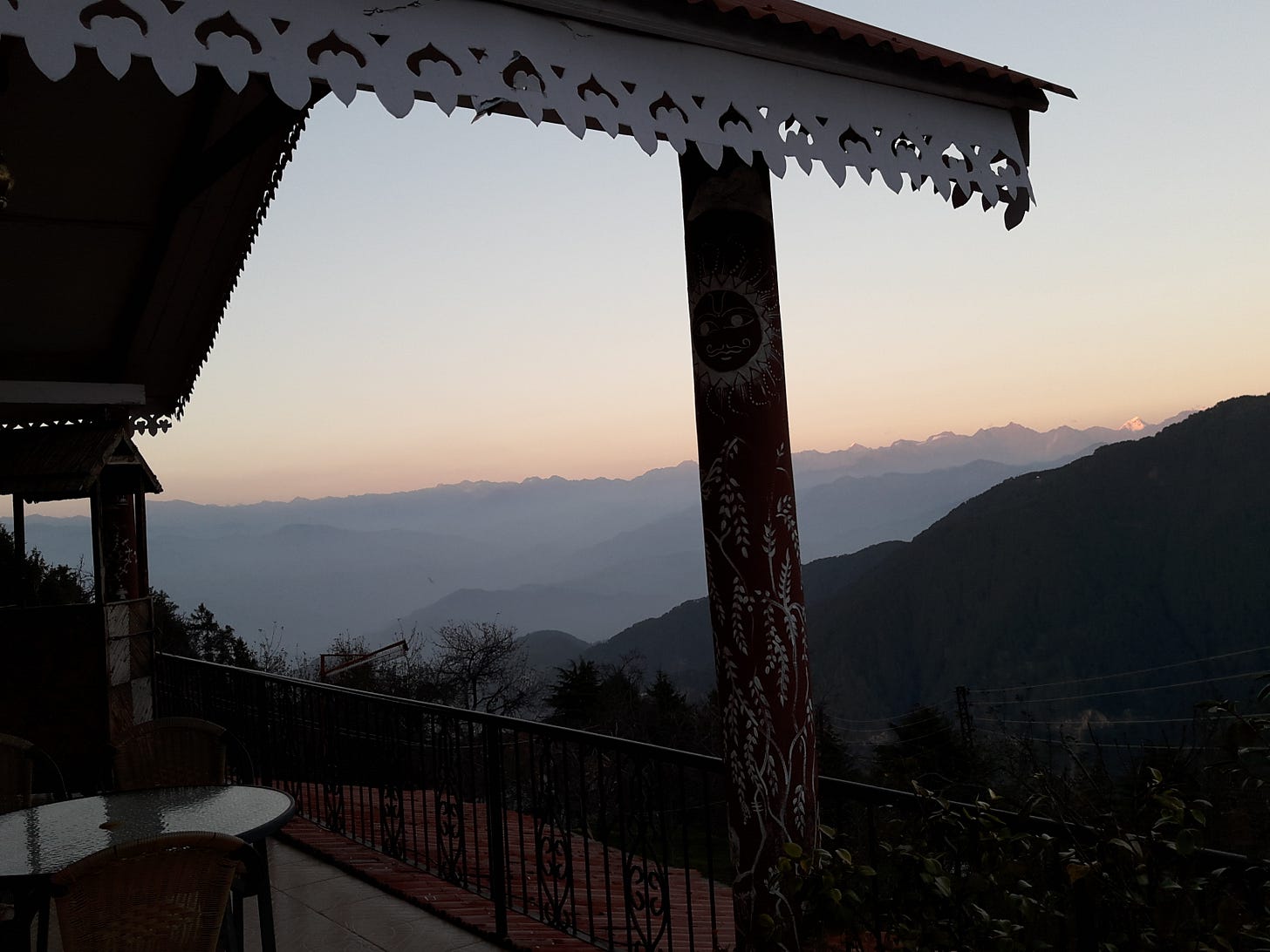WHY READ MANTO
In Manto's writing, we hear the impassioned voice of a writer who published against all odds even as the partition of the Indian subcontinent cleaved his soul.

I was first introduced to Saadat Hasan Manto through the translation, from Urdu, of a short story titled Toba Tek Singh that I’ve now read many times over. With every reading, the poignancy of the piece churns my stomach some more. To Manto, Partition was devastating at a professional and a personal level, and he limns the pathos and horror of it in this potent story.
The next time I read about this writer was when I happened upon a feature story while excavating articles important for work on my second book AN ENGLISH MADE IN INDIA. One of the articles I happened upon was titled Damme, This Is The Oriental Scene For You! by Salman Rushdie in The New Yorker in June 1997. Rushdie observed that, with the exception of Urdu writer Saadat Hasan Manto, no other Indian writer writing in the vernacular was worthy of mention.
To my own considerable astonishment, however, there is only one Indian writer in translation whom I would place on a par with the Indo-Anglian. (Actually, he’s better than most of them.) That is Saadat Hasan Manto, an immensely popular Urdu writer of low-life fictions, whom conservative critics sometimes scorn for his choice of characters and milieus, much as Virginia Woolf snobbishly disparaged the fictional universe of James Joyce’s “Ulysses.”
~ Salman Rushdie, The New Yorker, June 1997
I was taken aback by the observation. Clearly, there was no way for any reader to have read a fair amount of Indian literature, in the original, by the writers working in any of India’s 22 regional languages. I discovered, as the years went on, that at the time of the publication of that story in The New Yorker, the article had incinerated several writers working in the vernacular in India. Among those who wrote an open letter to Salman Rushdie was a celebrated poet and writer I met in Kolkata in 2016. In her rejoinder in The Express Sunday Magazine of July 13, 1997, Nabaneeta Deb Sen asked Salman Rushdie how he could have jumped to that conclusion. If a man did not read in all these other languages how did he know anything at all about the quality of the work to pass such a judgement?
Saadat Hasan Manto’s best short stories were indeed held in high regard by the literary community. Often they touched upon topics hitherto taboo and led to furore in both Indian and Pakistani society. Writing mainly in Urdu, Manto produced 22 collections of short stories, a novel, five series of radio plays, three collections of essays and two collections of personal sketches. His choicest stories lamented the partition of India following the country’s independence from British colonial rule in 1947.
The collection I read this week was a translation, by Aakar Patel, of Manto’s short columns published in Urdu newspapers. The book takes us through the changes in his life and we see the buildup of disillusionment and rancor in the writer as he cobbles together a life in Bombay and is wrenched away from it because of Partition. He leaves his heart behind in Bombay and attempts to build a semblance of a life in Lahore, once his hometown. It’s not the same, however.
What happens when the city once familiar suddenly becomes alien to you? After he moves to Lahore following Partition, Manto describes the place of his childhood with growing disenchantment and scorn. Everywhere he sees the words “Pakistan Zindabad”—which translates to “Long Live Pakistan”—and the dissension that has been sown into his country is already popping up in myriad small ways about the town.
On the way I walked through bazaars and the neighborhood. I had already seen most of these before but yesterday for the first time saw what they had become after Pakistan became “Zindabad”.
“Pakistan Zindabad—Mohajir Haircutting Saloon”; “Pakistan Zindabad—We Fix Locks”; “Pakistan Zindabad—Garam Chai Stall”; “Pakistan Zindabad—Hospital for Sick Pets”;
Each and every post about his life in Pakistan after Partition is harrowing. The essays are laced in sarcasm and disillusionment. As the commentary to God is Gracious in Pakistan says, the incendiary essay is not even publishable any more in contemporary Pakistan. In the essay on what is an Orwellian Dystopia, Manto proceeds to sketch an apocalyptic future in his country. Few will counter the resonance of this piece some seventy years after publication. Manto says that in his new country, Pakistan, the dancing girls are gone. Gone, too, are the poets.
“And, Allah forbid! All this stuff about praising hair and cheeks. All this dreaming of “union”. How filthy their minds were! Hai aurat (Oh woman!) they went all the time.
But now, by the grace of god, we’ve got fewer women among us, or at least it seems that way, because the ones we have are secure inside their homes. And the poets are gone.”
A few pages into this essay, Manto writes that the old form of literature has been snuffed out. In its place there is another kind of literature that has been sponsored by the ruling government.
“Thank the Lord, there is no more “literature” and no more writers in Pakistan. No more essays are published, praise Allah. In fact, even newspapers are not to be found. When the government needs to tell us something, they print a few pages. God alone knows best. The government prints that paper, perhaps once a year or so, when it’s needed. What’s there to report in any case? Nothing newsworthy ever happens in Pakistan. Northing for people to discuss.”
The work titled Virtuous Women in Cinema is Manto’s attempt to show that women had every right to enter the Hindi film industry if it pleased them to do so. He opines that they could actually be excellent in what they did and that the loose morals attributed to it only serve to underscore the hypocrisy of contemporary society.
“To those men, who want actresses to be women of virtue, I ask: is it fine for a man who acts to be not virtuous? I would say it is necessary for both actors and actresses not be virtuous, but familiar with the emotions they portray.”
Manto wrote the work titled A Question is Produced a few months after India’s Partition. In his essay, Manto demonstrates that much as a government might squeeze the voice of its people, the questions will always lurk in the shadows waiting to be posed. While the ideological State oppressed the individual and denied him the freedom of speech, it would never stifle something that would be born anyway. If questions could not be born, we would need birth control for them, he says, in a piece that bursts with relevance in the world today.
I found out that as a young man in his early twenties, Manto translated Victor Hugo's The Last Day of a Condemned Man into Urdu; he also translated Oscar Wilde’s Vera into Urdu in 1934. He published his first original story in Urdu, Tamasha (based on the Jallianwala Bagh massacre) under a pseudonym in Abdul Bari Alig’s Urdu newspaper Khalq (Creation). He also edited and translated Russian and French stories for the journals Alamgir and Humayun.
Hailed one of the finest 20th century Urdu writers, Manto has been the subject of several biographical films. This week on Netflix, I watched Manto directed by Nandita Das, with Nawazuddin Siddiqui in the lead role of Manto. It’s a dark and intense film about his life but when I consider that 75 years after his passing we are still discussing censorship and book banning, I don’t know what is more depressing, life as lived in the world or life as depicted on the silver screen.
Books continue to be banned even in western societies where, supposedly, the freedom of speech is a guarantee. Is it, really? I’ve often heard it said that my freedom of speech ends where someone else’s nose begins:-)
In this odd week, I’ve also been privy to a terrific discussion about book bans from experts at a panel conducted by Mellon Foundation. In the grandest of ironies, a ban simply goes on to pump up the sales of a book! I also came upon a post in The Guardian this week that discusses Ian McEwan’s criticism of the hiring of ‘sensitivity readers’ to look for offensive material in manuscripts. Time for an 🙄 emoji.
Saadat Hasan Manto was tried for obscenity six times; three times before 1947 in British India, and three times in Pakistan following India’s partition. The power of the written word won the day. Manto was never convicted.






Illuminating! Thank you for the introduction to Manto and his time.